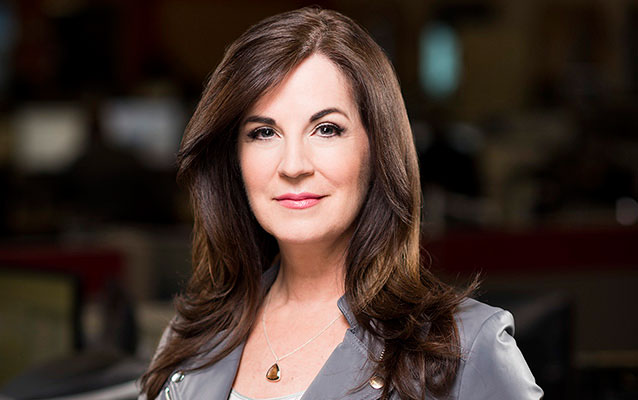
The Lorne Trottier Public Science Symposium is an annual event focusing on a topic of scientific interest for the public and is generously sponsored by the Trottier Family Foundation. This year’s Trottier Symposium (Oct. 17-18), entitled Science and the Media: the challenge of reporting science responsibly will explore how well the media reports on science and how journalists counter the rising tide of pseudoscience.
Erica Johnson is host of CBC’s Go Public and one of this year’s Trottier Symposium speakers. Her talk, Busting the spin cycle, will be on Monday, Oct. 17, at 5:30pm at the Centre Mont-Royal.
In advance of her lecture, Johnson spoke with the McGill Reporter about the challenges of being a science journalist and the impact of the internet on the public’s scientific literacy.
Teachers require a teaching degree, dentists require a dental degree; should a degree in science journalism be a requirement for newspaper science reporters?
I don’t believe science reporters should be required to have a degree in science, but it wouldn’t be a bad thing. A science degree would certainly help a reporter read science journals, and interpret data. But unlike teachers and dentists, science reporters don’t operate in an isolated environment – they have the opportunity to spend time researching and speaking with experts.
In my opinion, what leads to good journalism is allowing reporters to develop a beat (like science), instead of asking journalists to be “general interest” reporters. Beat journalism allows reporters to develop contacts within the science community, to build expertise, to give a story context and most importantly, to ascertain when a development is actually a story worth reporting.
How has the Internet affected the public’s scientific literacy?
The internet is a double-edged sword when it comes to improving the public’s scientific literacy. On the one hand, it’s an incredible tool for research. At the most basic level, people can use Google to enter a scientific claim or fact, along with the word “skeptic,” “scam” or “bogus” and can easily learn what is being said about the latest study or product. Websites like snopes.com are great rumour debunkers, and because that website lists its sources, people can access more information if they would like. The public can also use the internet to track down a study they may see cited somewhere, to get a fuller picture (find out if the study is large enough to be statistically accurate, is designed well, had a control group, who paid for the study, etc.).
However, anyone can post anything on the internet, claiming it to be “scientific.” It’s easy to create slick websites that can help make bogus products and health claims with no science behind them seem legitimate, and websites can easily use testimonials to boost so-called scientific claims (anyone can claim a “sciency” development has created a wrinkle cream that melts away years of aging). Once a bogus scientific claim starts to get widely circulated (for instance, the claim that vaccines lead to autism), they can be difficult to dispel.
Why is it that bloggers with no scientific background, like the “Food Babe,” amass huge numbers of followers?
I think people are hungry for information about their health, so bloggers who break down health information into digestible pieces that the average person can understand can become very popular. We’re inundated with reports and studies, so it’s convenient to have a blogger filter some of that information and deliver it in consumer-friendly language.
The most popular bloggers deliver content that has value to people’s lives – either by pulling together hard-to-gather information, by sharing advice, or making us laugh. They also often share positive life experiences, which makes the audience feel good and motivates people to return. Good bloggers are usually personal – they share tidbits about their lives.
Who doesn’t want to check out The Food Babe’s kitchen, and see what she eats for breakfast? If the blogger is a celebrity, people want to “follow” (we’re curious beings) and engage (popular blogs have a “comments” section). Of course, if a blogger is attractive and social media-friendly, that boosts popularity, too. Unfortunately, many bloggers don’t reference their sources, so the audience is trusting their interpretation of scientific (or unscientific) data. And because bloggers are often bloggers – not scientists or people with a scientific background – what they espouse can be an entertaining mix of fact and opinion, but not necessarily scientifically accurate.
Have you been attacked by people or companies who have taken issue with something that you produced?
I hosted CBC’s investigative consumer program Marketplace for over 15 years, and we were often attacked by people who didn’t appreciate stories we were producing. Threats of lawsuits were common, which was largely posturing by companies who had been portrayed negatively in our reports. A memorable attack came from the homeopathy community, which has been angered by our investigations of homeopathic “remedies” and “vaccines.” Supporters of homeopathy picketed outside CBC Toronto headquarters, wrote letters to the CBC Ombudsman arguing our reports should not air, and tried to crash our website, by inundating the site with comments.
Investigative journalism often reveals truths people would rather not have discussed, so controversy is par for the course.
The 2016 Lorne Trottier Public Science Symposium, Science and the Media: The challenge of reporting science responsibly, will be held on Oct. 17 – 18. For more information, please visit the Trottier Symposium website.
Read how the same questions were answered by the Symposium’s other panelists: Sense About Science USA’s Trevor Butterworth; Vox.com’s Julia Belluz; and The Washington Post’s Joel Achenbach.
